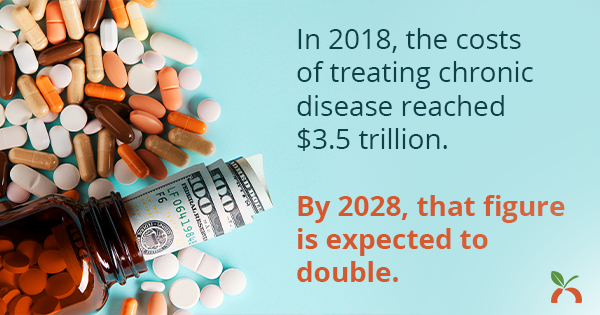How expensive is chronic disease? In 2018, the costs of treating chronic disease reached $3.5 trillion—and are expected to nearly double by 2028. Nearly 90% of those costs are associated with the treatment of chronic conditions.
To control these costs, it’s essential you understand your population’s greatest health threats and work to prevent them. This begins with understanding the lifestyle factors that contribute to health conditions – things like getting enough exercise, eating a balanced diet, and staying current with health screenings and vaccines. Consider the following stats on American health habits:
- 9 in 10 consume too much salt
- Half of all adults don’t exercise regularly
- 1 in 4 say they binge drink
- 1 in 5 smoke
- 4 in 5 don’t eat enough fruit
- 9 in 10 don’t eat enough vegetables
But how do you know if these sobering statistics match your population’s health habits? Luckily, this type of lifestyle data will be collected by a quality HRA. Here’s how health risk assessment (HRA) data provides direct and indirect insights into the health risks that common lead to chronic disease.
HRAs identify individuals with habits that lead to America’s top health problems such as poor nutrition, inadequate physical activity, smoking, and excessive alcohol use. Here are some important data points a quality HRA will collect about your population:
- Amount of daily exercise
- If they enjoy a balanced, healthy diet
- Amount of alcohol consumption
- Their readiness to change unhealthy habits
This information helps you design interventions that engage individuals in behavior change, avert or manage chronic diseases, track changes in your population’s health, and measure the value of your wellness efforts.
Employers, health plans, and other healthcare providers cannot afford to continue business as usual. The World Health Organization (WHO) promotes prevention efforts as “a vital investment” and the CDC and Centers for Medicare and Medicaid Services (CMS) agree.
Here are 4 reasons an HRA is a vital component of your prevention plan:
Promoting healthy behaviors via your HRA can lower health costs
Leading health professionals testified before Congress that promoting healthy behaviors would, indeed, lower the nation’s healthcare costs, explaining that investing in improving employee health saved the Cleveland Clinic $254 million in direct medical costs and Burd Health experienced a 40% decrease in healthcare costs.
HRAs provide you with the data you need to target your chronic disease prevention efforts
Addressing unhealthy habits identified by an HRA can prevent chronic disease. That’s because healthy habits like getting regular exercise and not smoking (or quitting if you do) reduces the risk for heart disease, diabetes, ad more. When prevention isn’t possible, healthy habits can manage symptoms, improve an individual’s quality of life, and extend life.
A quality HRA will inform quality interventions
By using an NCQA-certified HRA, you can be confident the data collected aligns with accreditation requirements for providing quality care. The data provides insights you need to craft interventions that improve population outcomes.
Track changes in habits and health over time with year-over-year HRA data
An initial HRA reveals the healthier habits your population should adopt. Subsequent HRAs will provide trending data on your population. You can measure success when you see positive trends in your population’s health.
Curious about other ways an HRA is essential for controlling the costs of chronic disease? Check out our new guide, Mitigate the Costs of Chronic Disease with Health Risk Assessment, including the section “10 Ways an HRA Helps Reduce Chronic Disease Risk.”








